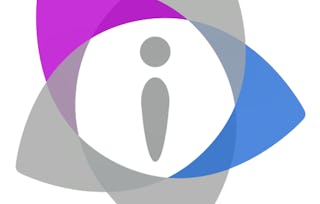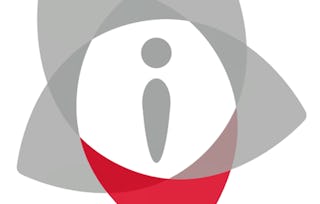Palliative care provides important support for people living with serious or life-limiting illnesses and their family caregivers. In this course, you will learn to use symptom assessment tools to better understand which symptoms are present and which are most distressing. In subsequent weeks you will learn about some of the most common and distressing symptoms such as anorexia (loss of appetite), dyspnea (shortness of breath), fatigue (weakness), delirium(confusion) and constipation and nausea/vomiting. For each of these symptoms, you will learn about the underlying cause and potential ways to support people and their families to manage the symptoms with simple practical and non-medical approaches as well as a review of medications as appropriate. In addition, you will learn to help people with their emotional response to symptoms and loss of function.

Easing Physical Symptoms: It's Not Just Hospice Anymore

Easing Physical Symptoms: It's Not Just Hospice Anymore
This course is part of Palliative Care: It's Not Just Hospice Anymore Specialization



Instructors: Regina Fink
4,531 already enrolled
Included with
89 reviews
Skills you'll gain
Details to know

Add to your LinkedIn profile
6 assignments
See how employees at top companies are mastering in-demand skills

Build your subject-matter expertise
- Learn new concepts from industry experts
- Gain a foundational understanding of a subject or tool
- Develop job-relevant skills with hands-on projects
- Earn a shareable career certificate

There are 5 modules in this course
Welcome! In this module, you will learn about physical symptom assessment and then about the distressing symptoms of anorexia (loss of appetite) and cachexia (extreme weight loss). People living with serious illness often have more than five non-pain symptoms, like loss of appetite, dyspnea, weakness, confusion and many others that are contributing to suffering. You will learn how to use a symptoms assessment tool to help providers understand what symptoms are present and what is most distressing and needs prompt attention. In the second part of this week, you will learn about the common symptom of anorexia: Loss of appetite. When you understand anorexia you are able to look for reversible causes, support patient and family emotional distress, and offer practical help to manage this problem.
What's included
11 videos10 readings1 assignment
In this module, you will review dyspnea assessment basics. You will start with defining dyspnea and the scope of the dyspnea problem in the palliative care setting. You will review various types and causes of dyspnea in people with serious illness. To understand how medications and integrative pain therapies work to decrease dyspnea, you need to know how the body recognizes dyspnea and makes a person short of breath. You will review how to evaluate a person’s dyspnea and how to help people pace themselves so that they can live with shortness of breath.
What's included
5 videos4 readings1 assignment
In this module you learn about the physical symptom of asthenia, also called fatigue. Fatigue and weakness are seen in almost all people living with serious illness. Although fatigue is common and very emotionally distressing, providers often don't talk about it with patients and families because they think that there is nothing they can do. Although fatigue is a difficult symptom to treat it is important to look for reversible causes, consider ways to reduce the distress of fatigue and provide practical help to cope and live well with serious illness.
What's included
8 videos7 readings1 assignment
In this module the learner will be introduced to the term “cognitive impairment”, the common types of this impairment, how these types differ, as well as signs and symptoms experienced by patients suffering with this type of serious illness.
What's included
7 videos4 readings2 assignments
Nausea, vomiting, and constipation are frequent symptoms among patients with advanced illness. The aim of this lecture is to review how these symptoms occur and how they can be treated from a palliative care perspective.
What's included
5 videos2 readings1 assignment
Earn a career certificate
Add this credential to your LinkedIn profile, resume, or CV. Share it on social media and in your performance review.
Instructors


Offered by
Explore more from Patient Care
 Status: Free Trial
Status: Free TrialStanford University
 Status: Free Trial
Status: Free TrialUniversity of Colorado System
 Status: Free Trial
Status: Free TrialUniversity of Colorado System
 Status: Free Trial
Status: Free TrialUniversity of Colorado System
Why people choose Coursera for their career

Felipe M.

Jennifer J.

Larry W.

Chaitanya A.
Learner reviews
- 5 stars
89.88%
- 4 stars
6.74%
- 3 stars
3.37%
- 2 stars
0%
- 1 star
0%
Showing 3 of 89
Reviewed on May 1, 2019
All instructors are amazing. Additional videos were very valuable.
Reviewed on Feb 23, 2019
A great and a very useful course. I like that we are taught about the medicine.
Reviewed on May 9, 2020
Very Informative and Easy to Understand.Would highly recommend to everyone interested in end of life issues.

Open new doors with Coursera Plus
Unlimited access to 10,000+ world-class courses, hands-on projects, and job-ready certificate programs - all included in your subscription
Advance your career with an online degree
Earn a degree from world-class universities - 100% online
Join over 3,400 global companies that choose Coursera for Business
Upskill your employees to excel in the digital economy
Frequently asked questions
To access the course materials, assignments and to earn a Certificate, you will need to purchase the Certificate experience when you enroll in a course. You can try a Free Trial instead, or apply for Financial Aid. The course may offer 'Full Course, No Certificate' instead. This option lets you see all course materials, submit required assessments, and get a final grade. This also means that you will not be able to purchase a Certificate experience.
When you enroll in the course, you get access to all of the courses in the Specialization, and you earn a certificate when you complete the work. Your electronic Certificate will be added to your Accomplishments page - from there, you can print your Certificate or add it to your LinkedIn profile.
Yes. In select learning programs, you can apply for financial aid or a scholarship if you can’t afford the enrollment fee. If fin aid or scholarship is available for your learning program selection, you’ll find a link to apply on the description page.
More questions
Financial aid available,



